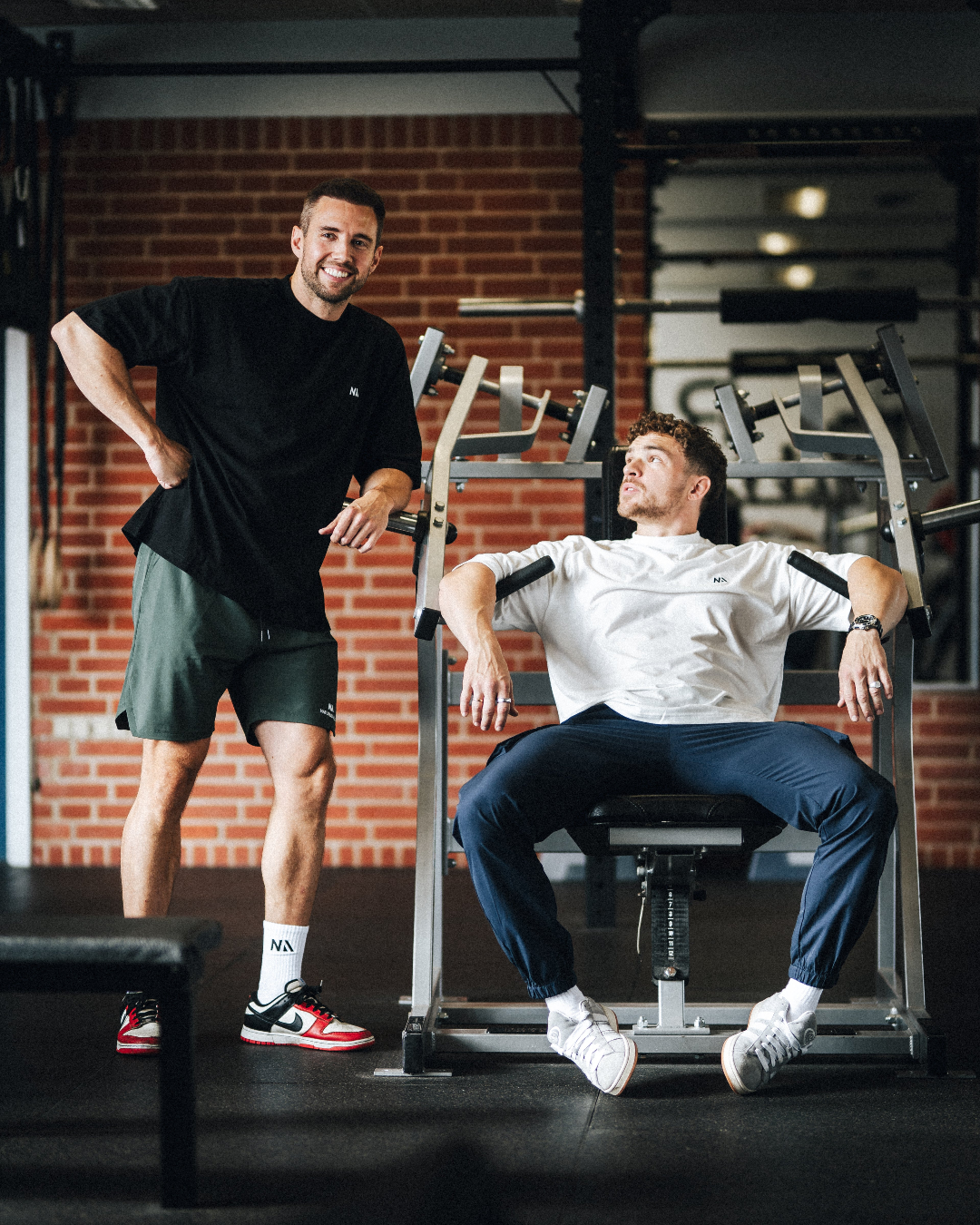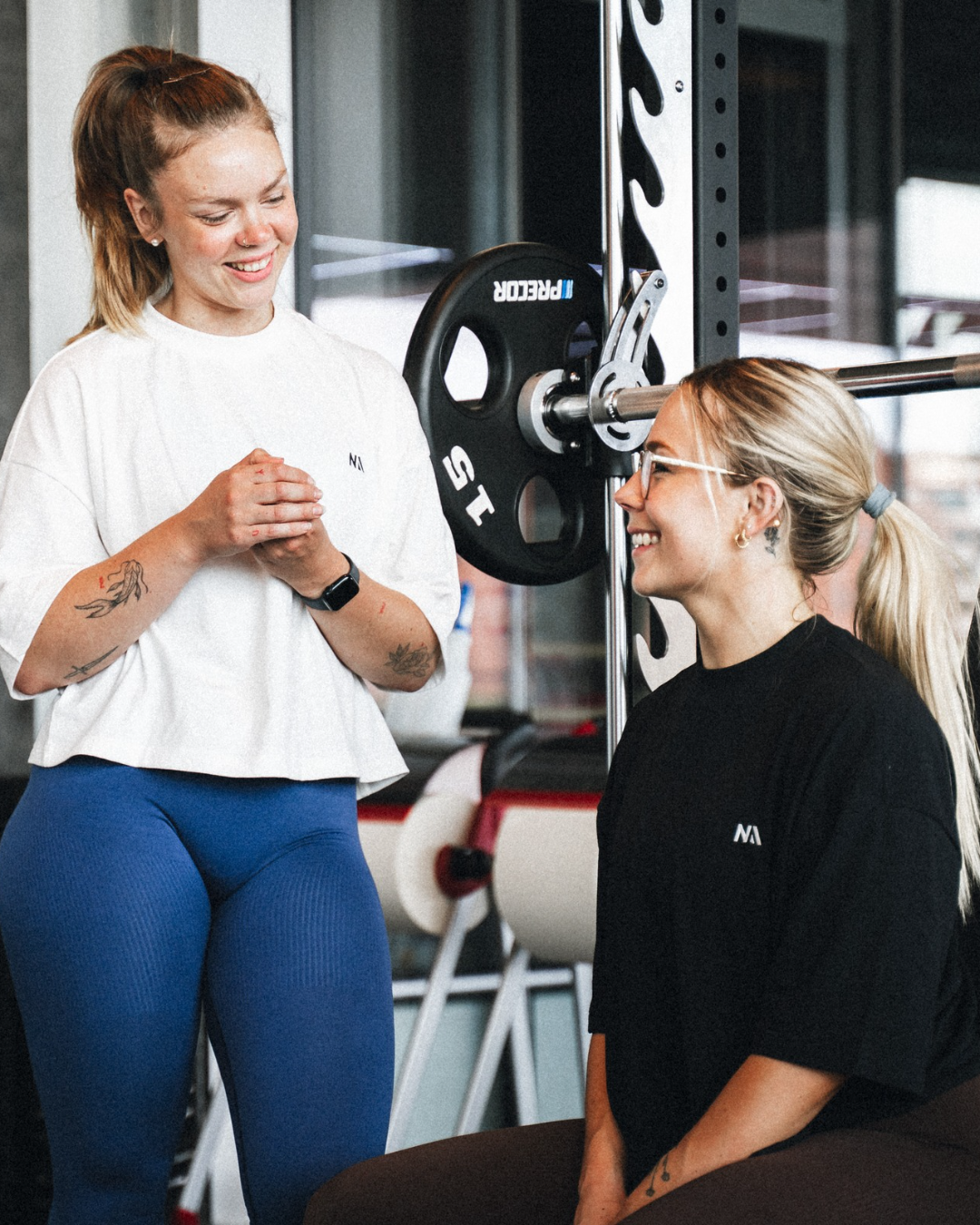Everything you need to know about kreatin
One of the most important supplements when you take your training seriously is creatine.
Should I take creatine? If you want to improve your training, muscle growth and strength gains, creatine can be a very good choice. It is one of the most well-documented nutritional supplements available.
Have you thought about the following:
- What exactly is creatine?
- What effect does it have?
- Is it relevant to me?
- How and how much to take, especially when training?
You are far from the only one with these questions, and we provide answers to them below.
What is creatine?
Creatine is an organic molecule that the body produces itself, but it is also found in protein-rich foods such as meat, fish and eggs. Creatine is naturally stored in the muscles and plays an important role in maintaining and improving muscle strength and endurance.
When you take creatine as a powder, the stores of phosphocreatine in the muscles increase, providing more available energy for the muscles. This results in an improved performance during strength training. Since we only get a small amount of creatine through the diet, it can be advantageous to supplement with creatine as a dietary supplement.
Why take creatine?
Creatine can contribute to better exercise performance, increased muscle mass and improved anaerobic performance. If you often feel that you lack the last push to perform maximally in your training, creatine can be a good solution. Many athletes use it to optimize their training.
How does creatine work?
Creatine has a cumulative effect, which means that it only works when your creatine stores in the muscles have been replenished over time. Unlike some other supplements that work immediately, creatine requires a period of regular intake before you begin to notice an improvement in your strength and endurance. It therefore requires a little patience before the effect becomes apparent.
Example:
A person who weighs 80 kg must consume 5-10 grams of creatine per day and there is no need for "Loading Phases" breaks or the like.
Everything you need to know about protein powder
If you want to build muscle mass, getting enough protein is essential. Protein plays a central role in muscle building, so if you don't get enough, you won't get the full benefit of your training. If it is difficult to reach your daily protein requirement through diet alone, protein powder can be an effective solution.
In this article, we will answer some of the most common questions about protein powder, such as what it does, how much you should take daily, and which protein powder to choose.
What is protein?
Protein is the body's building block and is needed to build cells, enzymes, antibodies and muscles. Protein consists of amino acids, some of which are essential as the body cannot produce them itself. Therefore, a diet rich in protein is necessary to ensure optimal recovery and muscle building.
In order to build muscle, it is important to consume sufficient protein. It is also important if you want to lose weight, as proteins help maintain muscle mass during a caloric deficit. In addition, a protein-rich diet increases the feeling of satiety, which can help you avoid excess calories.
What does protein powder do?
Protein powder makes it easy to meet your daily protein needs. Once you know how much protein you need per day, you can easily include protein powder in your diet. It's especially useful when you want to make sure you're getting enough protein to support muscle building.Protein powder gives you the best conditions for achieving your goals when it comes to building muscle mass.
Why take a protein shake after training?
It is a good idea to drink a protein shake after training because the body absorbs the protein more easily at this time. After exercise, the rate at which the muscles absorb and use proteins to repair and build muscle tissue increases. By drinking a protein shake immediately after training, you can maximize the benefits of your efforts.
How much protein powder per day?
One of the most common questions is how much protein powder to take per day. If you do intense strength training daily, you should consume around 1.2-1.5 grams of protein per day. kg body weight per day. Much of this can come from a regular diet, but if you're not getting enough protein, you can supplement with one or two protein shakes daily to meet your needs.
How much protein powder after training?
If you are unsure how much protein powder to take after training, it is recommended to drink a shake with at least one scoop (approx. 30-35 g) of protein powder mixed with 250-300 ml of water or milk. This will give your body the necessary building blocks to support post-workout muscle building.
When is the best time to take protein powder?
There is often doubt as to when it is most optimal to consume protein powder. In fact, there is no research to show that there is a specific time of day when it is best to take it. However, we recommend that you consume protein powder either before, during or after training. Taking protein powder before training can give you extra energy to perform more during your training. Similarly, it is also effective to take protein powder after training, as the body can better absorb the protein at this time, which promotes muscle building.
The different types of protein powder
Protein powder comes in several varieties, and the three most common are:
- whey protein: This is a high-quality protein extracted from cow's milk and is the most popular type of protein powder. Whey protein contains all nine essential amino acids and can be dissolved in both water and milk.
- Casein protein: Casein protein is known as the "slow" protein as it is released more slowly in the body. It is ideal to take before bed so that the body has a constant supply of protein throughout the night. However, casein protein is often more expensive than both soy and whey protein.
- Soy protein: This is a plant-based protein extracted from soybeans. Soy protein is a good choice for vegans or people who are lactose intolerant, and it can be dissolved in both milk replacers and water.










Leave a comment
This site is protected by hCaptcha and the hCaptcha Privacy Policy and Terms of Service apply.